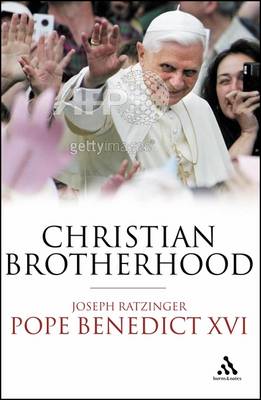Stagbooks S.
1 total work
A seminal short book by Joseph Ratzinger which is now reissued and will be studied with even greater attention. Brotherhood as an ideal has meant many different things to different men. In this disarmingly simple study Ratzinger begins by examining two contrasting views: that of the ancient mystery religions which created 'closed' brotherhoods of the initiated; and that of the Enlightenment, which looked to a future achievement of an open brotherhood of all men. The author finds the first of these views too restricted and inward looking and the second too extended to make hard sense. But it is crucial to his purpose that he does not reject either out of hand. After a brilliant exposition of New Testament teaching, he proposes a synthesis in which the Christian ideal of brotherhood is shown to combine both these opposing views in a fruitful tension. Christian brotherhood he argues is both 'restricted' and 'universal'. The closed brotherhood of the Christian elect, who are all sons of the one father, exists, not for its own sake but as a sacrament of the world election and is open to all men and women.
Essential biblical Christianity is once again shown to be more meaningful and more radical than most of us, Christian or non-Christian, care to suppose.
Essential biblical Christianity is once again shown to be more meaningful and more radical than most of us, Christian or non-Christian, care to suppose.
